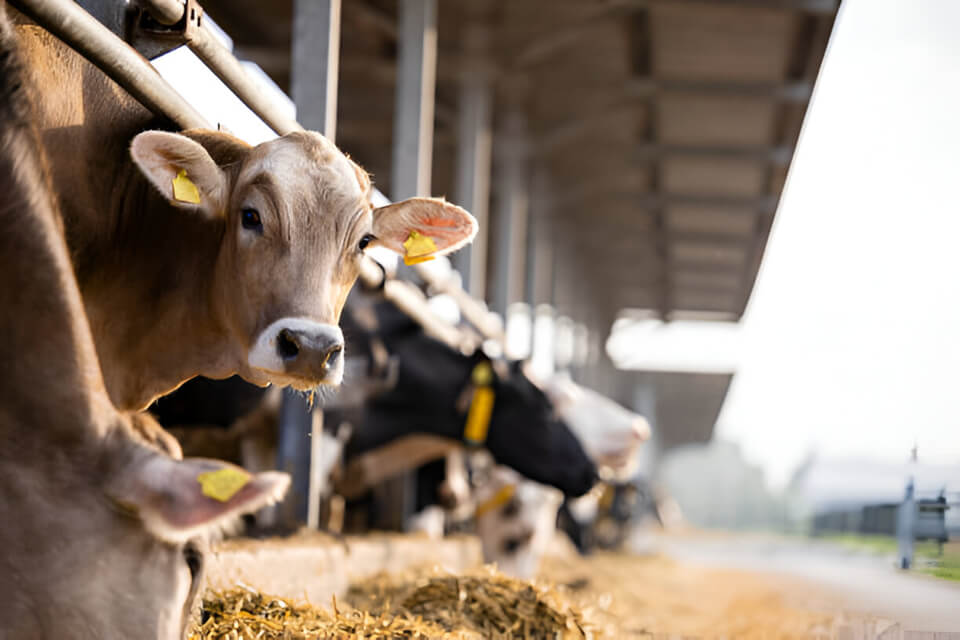- Introduction
- Introduction: The Potential of Agribusiness in Africa
- Identifying Profitable Agribusiness Opportunities in Africa
- Key Steps in Planning Your Agribusiness
- Understanding Legal and Regulatory Requirements
- Securing Funding and Resources for Your Agribusiness
- Building a Sustainable Agribusiness Model
- Case Study
- Frequently Asked Questions (FAQs)
- Conclusion
Introduction
Starting a tech-driven agribusiness in Africa presents incredible opportunities for entrepreneurs looking to tap into the continent’s evolving startup ecosystem. With access to fertile land and a growing demand for food, knowing how to start an agribusiness in Africa can unlock vast potential. However, to truly succeed, entrepreneurs must also navigate challenges similar to tech startups, such as securing SME funding in Africa and avoiding common mistakes many African startups make.
African startups can thrive and impact local and global markets by adopting tech solutions and focusing on long-term sustainability. For those looking to tap into this thriving sector, understanding how to start an agribusiness in Africa is crucial in reaping the rewards while overcoming common challenges. These and more are the angles we’ll explore in this article.
Introduction: The Potential of Agribusiness in Africa
Agribusiness in Africa holds immense potential, offering opportunities for economic growth, job creation, and food security. With vast arable land, a youthful population, and increasing demand for agricultural products, Africa is poised to become a global agricultural powerhouse. Agribusiness can transform Africa’s economy by investing in technology, infrastructure, and sustainable practices.
Overview of Agribusiness as a Key Economic Sector in Africa
Agribusiness has been a critical pillar of Africa’s economy for decades, vital in job creation, food security, and overall economic development. It employs over 60% of the continent’s population, making it the largest source of livelihood, particularly in rural areas. Small and large-scale farmers contribute significantly to Africa’s GDP, supplying domestic markets and generating export revenue.
The sector is on the brink of further growth as Africa’s push for industrialization and diversification beyond raw commodity exports increasingly focuses on agro-processing and value addition. Agribusiness remains vital to driving sustainable development and reducing poverty across the continent.
The Growing Demand for Agricultural Products and the Continent’s Rich Natural Resources
Africa’s rapidly growing population, increasing urbanization, and shifting consumption patterns drive a rising demand for agricultural products, positioning agriculture as a highly lucrative business. Staple crops like maize, cassava, and rice are essential for local consumption, while horticultural products such as fruits and vegetables are gaining prominence in domestic and export markets.
The continent’s vast natural resources, including over 60% of the world’s arable land, present immense opportunities for agricultural expansion. Africa has the potential to achieve food security for itself and to emerge as a major global food supplier, addressing worldwide food shortages.
Opportunities for Innovation, Technology Adoption, and Sustainable Farming Practices
Modernizing Africa’s agricultural sector through the adoption of innovative technologies presents significant opportunities for agripreneurs across the continent. Precision farming uses data analytics to optimize crop yields, intelligent irrigation systems that efficiently manage water resources, and digital platforms connecting farmers with markets, revolutionizing traditional farming practices.
These innovations not only enhance productivity but also promote cost-effective solutions. Sustainable farming practices are also gaining importance, focusing on environmentally friendly methods such as crop rotation, organic fertilizers, and conservation techniques to preserve soil health. Embracing innovation and sustainability is vital in ensuring Africa’s long-term agricultural growth and food security.

Identifying Profitable Agribusiness Opportunities in Africa
Identifying profitable agribusiness opportunities in Africa involves exploring sectors like crop farming, livestock production, agro-processing, and aquaculture. High-demand areas include organic produce, export crops, poultry, and dairy farming. Investing in value-added products, such as packaged foods or biofuels, and leveraging technology for efficiency can unlock significant profits in Africa’s growing agribusiness sector.
Crop Farming
Growing high-demand crops like maize, rice, cassava, and horticultural products offers a profitable opportunity in Africa’s agribusiness sector. These staple crops are vital for local consumption, providing food security, while others, like horticultural produce, have strong export potential. Additionally, cultivating cash crops such as coffee and cocoa presents opportunities to tap into lucrative global markets, boosting income for farmers and contributing to the continent’s economic growth and trade expansion.
Livestock and Poultry
Livestock farming, particularly cattle and poultry, presents a promising investment opportunity in Africa. As demand for meat, dairy products, and eggs continues to rise, agribusinesses can capitalize on this by focusing on cattle breeding, dairy production, and goat rearing. These ventures meet local consumption needs and have export potential, offering sustainable income sources for farmers while contributing to food security and economic growth across the continent.
Aquaculture and Fisheries
Aquaculture and fisheries have seen significant growth in Africa, driven by the increasing demand for fish, which often surpasses local supply. Fish farming offers a lucrative business opportunity for entrepreneurs looking to meet domestic and export needs. This sector is crucial in boosting food security, providing a sustainable protein source, and fostering economic growth.
By investing in aquaculture, African agribusinesses can tap into a rapidly expanding market while addressing the continent’s nutritional challenges.
Agro-Processing
Adding value to raw agricultural products through agro-processing can significantly increase profitability. Ventures like fruit juicing, flour milling, and meat processing offer higher margins by transforming raw materials into finished products ready for retail.
Organic Farming
Organic products are becoming increasingly popular both locally and internationally. Adopting organic farming practices in this niche market can give agribusinesses a competitive advantage, meeting the growing demand for healthier, sustainable food options.
Agri-tech and Smart Farming Solutions
Technology is transforming agribusiness in Africa. Innovations like farm management software, precision farming tools, and digital platforms connecting farmers with markets are revolutionizing the sector, making farming more efficient and profitable.
Agro-Logistics and Supply Chain Management
Efficient logistics and supply chain management are critical for the success of agribusinesses. In storage, transportation, and distribution, opportunities abound, ensuring that agricultural products reach markets on time and in good condition.

Key Steps in Planning Your Agribusiness
Planning your agribusiness involves several key steps to ensure success. These several steps include the following:
- Market Research and Feasibility Study
Before starting any agribusiness, conducting thorough market research is essential. Understand the market demand for your products, assess the competition, and identify your target customers. This study helps validate your business idea and ensures it has the potential for success.
- Developing a Business Plan
A well-structured business plan is your roadmap to success. It should include your business model, market analysis, financial projections, and operational strategies. A solid business plan is also crucial when seeking funding or attracting investors.
- Selecting the Right Location
Choosing a suitable location is critical for agribusiness success. When selecting your farm or processing site, consider factors like soil quality, water availability, and market proximity. A strategic location reduces costs and improves operational efficiency.
- Choosing Your Agricultural Products or Services
Focus on products or services with proven profitability. Whether you farm crops, rear livestock, or provide agri-services, ensure strong market demand. Leverage your expertise and local market knowledge to make informed decisions.
- Resource Planning
Plan for the necessary resources, including land, equipment, labor, seeds, fertilizers, and other inputs. Efficient resource management helps reduce costs and maximizes output, improving your bottom line.
Understanding Legal and Regulatory Requirements
While navigating the legal and regulatory landscape is crucial for any agribusiness, understanding local laws, industry standards, and compliance requirements ensures your operations run smoothly. Familiarizing yourself with licensing, labor laws, and environmental regulations is equally essential. By staying informed, you can avoid potential legal pitfalls and position your business for long-term success in the agricultural sector.
Business Registration and Licensing
To operate legally, registering your agribusiness and obtaining the necessary licenses and permits is essential. Each African country has its regulatory framework, so compliance with local laws is crucial to avoid penalties. Research the specific requirements in your region, including agricultural permits and health certifications. This proactive approach ensures legal compliance and builds credibility with customers and partners, setting a solid foundation for your agribusiness’s growth and sustainability.
Land Acquisition and Leasing
Land acquisition can be pretty complex in Africa, requiring a thorough understanding of land ownership rights, leasing options, and the local legal framework. Navigating these intricacies is vital for ensuring smooth business operations. By familiarizing yourself with the relevant laws and regulations, you can avoid potential disputes and secure your investment effectively.
Compliance with Agricultural Standards
Agribusinesses must comply with local and international agricultural standards to remain competitive. Adhering to food safety regulations and obtaining necessary certifications guarantees the quality of your products and opens doors for export opportunities. By meeting these standards, your agribusiness can gain consumer trust, access global markets, and grow sustainably.
Environmental Regulations
Farmers must ensure their practices align with environmental laws, emphasizing sustainability and responsible resource management. Focus on efficient water use, waste management, and reducing chemical inputs to protect the ecosystem. Adopting eco-friendly practices enhances your farm’s productivity and contributes to a healthier environment for future generations.
Taxation and Import/Export Laws
Understanding tax obligations and import/export regulations is vital for agribusinesses aiming to maximize profitability. Staying compliant with local tax laws helps avoid penalties and allows you to benefit from available government incentives and support schemes. In navigating these regulations effectively, you can enhance your business’s financial health and position yourself for sustainable growth in the competitive agricultural market.
Securing Funding and Resources for Your Agribusiness
Securing funding and resources is crucial for your agribusiness to thrive. Start by exploring various funding options like government grants, loans, and private investors. Building solid relationships with local banks and agricultural organizations can also open doors. Don’t overlook crowdfunding platforms—they’re a great way to rally your community and raise capital while highlighting your business’s potential impact.
Accessing Agricultural Loans and Grants
Agribusinesses frequently need substantial capital to start and grow. Banks, microfinance institutions, and government schemes provide agricultural loans and grants to meet these financial needs. These funding options support new ventures and expanding operations within the sector. By exploring and applying for these loans and grants, agribusinesses can secure the necessary resources to invest in infrastructure, equipment, and technology, ultimately enhancing their potential for success and sustainability.
Attracting Investors and Venture Capital
Craft a compelling pitch highlighting Africa’s booming agricultural sector to attract investors and venture capital for your agribusiness. Emphasize your business plan’s strength and the potential for high returns to capture investor interest. Demonstrating a clear path to profitability, market potential, and innovative approaches can make your venture stand out. You can secure the funding needed to grow and succeed in the dynamic agribusiness landscape by showcasing these elements.
Crowdfunding and Community Funding
Online crowdfunding platforms and community-based funding models have become increasingly popular in Africa as practical capital-raising tools. By utilizing these resources, agribusinesses can secure necessary funds while actively engaging their community. Crowdfunding allows you to reach a broad audience and gather small investments from many people, while community funding taps into local support and investment.
Both methods provide financial backing and build a strong network of supporters and advocates for your business.
Government Subsidies and Support Programs
African governments provide various incentives, subsidies, and support programs to fortify agribusinesses. These resources are designed to reduce startup costs, making it easier for new ventures to establish themselves and thrive. By leveraging these government offerings, agribusinesses can enhance their financial stability, access valuable resources, and improve overall profitability. Engaging with these support programs helps mitigate financial barriers and fosters growth and sustainability in the agricultural sector.
Resource Partnerships
Forming resource partnerships with suppliers, agri-tech companies, and cooperatives can significantly benefit agribusinesses by sharing resources and cutting costs. These collaborations help streamline operations and enhance market reach, enabling businesses to access advanced technologies, high-quality inputs, and broader distribution networks. By working together, partners can leverage each other’s strengths, improve efficiency, and foster innovation, ultimately leading to greater profitability and success in the competitive agribusiness sector.
Building a Sustainable Agribusiness Model
- Adopting Sustainable Farming Practices
Sustainability is vital to long-term success. Adopt eco-friendly practices like crop rotation, organic farming, and integrated pest management to improve yields while protecting the environment.
- Leveraging Technology and Innovation
Technological advancements such as irrigation systems, drone monitoring, and data analytics are transforming African agribusinesses. Leverage these innovations to boost productivity and reduce costs.
- Efficient Resource Management
Proper resource management ensures you use water, energy, and soil sustainably. Minimize waste and optimize resources to cut costs and increase profitability.
- Value Addition and Diversification
Diversify your income streams by adding value to your agricultural products and reducing reliance on a single crop or market. This increases profitability and provides more stability for your business.
- Building Resilient Supply Chains
Develop robust supply chains that withstand market fluctuations, climate change, and logistical challenges. A resilient supply chain ensures your agribusiness remains competitive and sustainable.

Case Study
Babban Gona – Empowering Smallholder Farmers in Nigeria
Babban Gona, meaning “Great Farm” in Hausa, is a Nigerian agricultural enterprise founded in 2012 by Kola Masha. The company was established to address the challenges faced by smallholder farmers in Nigeria, including limited access to credit, quality inputs, and markets, which often result in low productivity and poverty.
Babban Gona employs an innovative cooperative model that enables smallholder farmers to achieve economies of scale. Farmers are grouped into Trust Groups, which receive financing, high-quality seeds, fertilizers, training, and market access. This model ensures farmers can grow and earn more while minimizing risks associated with defaulting on loans.
Since its inception, Babban Gona has significantly impacted Nigeria’s agricultural sector. By 2023, the company had supported over 200,000 smallholder farmers, increasing their productivity and income. On average, Babban Gona farmers have experienced a 2-3x increase in yields and a 2.5x increase in revenue compared to traditional smallholder farmers. This has helped lift thousands of families out of poverty and improve food security in Nigeria.
Babban Gona’s model proves that when combined with innovative solutions, agribusiness can drive significant economic growth and empower smallholder farmers in Africa. It is a successful real-life case study of how agribusiness can transform lives and communities across the continent.
Lessons Learned
Here are five key lessons learned from the Babban Gona case study:
1. Cooperative Models Increase Efficiency: Grouping smallholder farmers into Trust Groups allows them to access resources collectively, achieving economies of scale and reducing individual risk.
2. Access to Quality Inputs Boosts Productivity: Providing farmers with high-quality seeds, fertilizers, and training leads to significant improvements in yield and overall productivity.
3. Financing is Crucial for Growth: Access to affordable credit enables smallholder farmers to invest in their farms, increasing their capacity to grow and earn more.
4. Market Access Ensures Sustainable Income: Linking farmers directly to markets ensures they can sell their produce at competitive prices, leading to increased and sustainable incomes.
5. Innovative Agribusiness Models Reduce Poverty: By offering a holistic approach—combining finance, inputs, training, and market access—agribusinesses like Babban Gona can significantly lift smallholder farmers out of poverty.
Frequently Asked Questions (FAQs)
1. What is the most profitable agribusiness in Africa?
Due to high local and international demand, crop farming, livestock, poultry, aquaculture, and agro-processing are among the most profitable agribusinesses.
2. How do I access funding for my agribusiness?
You can access funding through agricultural loans, grants, crowdfunding, and government subsidies. Attracting investors and forming resource partnerships can also help.
3. What are the legal requirements for starting an agribusiness in Africa?
Legal requirements include registering your business, obtaining necessary permits, understanding land ownership rights, and complying with agricultural standards.
4. What technological innovations are available for African agribusinesses?
Precision farming, intelligent irrigation systems, drone monitoring, and digital platforms that connect farmers to markets are transforming African agribusiness.
5. How can I ensure my agribusiness is sustainable?
Implement sustainable farming practices, leverage technology, manage resources efficiently, and diversify your product offerings to ensure long-term success.
Conclusion
In conclusion, starting an agribusiness in Africa presents an immense opportunity for growth, profitability, and social impact. With the continent’s abundant natural resources, rising demand for agricultural products, and a growing emphasis on technology and sustainability, agripreneurs can tap into a thriving sector poised for expansion. However, success requires careful planning, understanding the market, and adherence to legal and regulatory requirements.
By leveraging innovative farming practices, securing funding, and building resilient supply chains, African agribusinesses can meet local food demand and play a pivotal role in global markets. Case studies like Babban Gona highlight the transformative potential of agribusiness in reducing poverty and empowering communities. As Africa modernizes its agricultural sector, entrepreneurs who adopt sustainable, tech-driven solutions will be well-positioned to reap the rewards of this booming industry.



